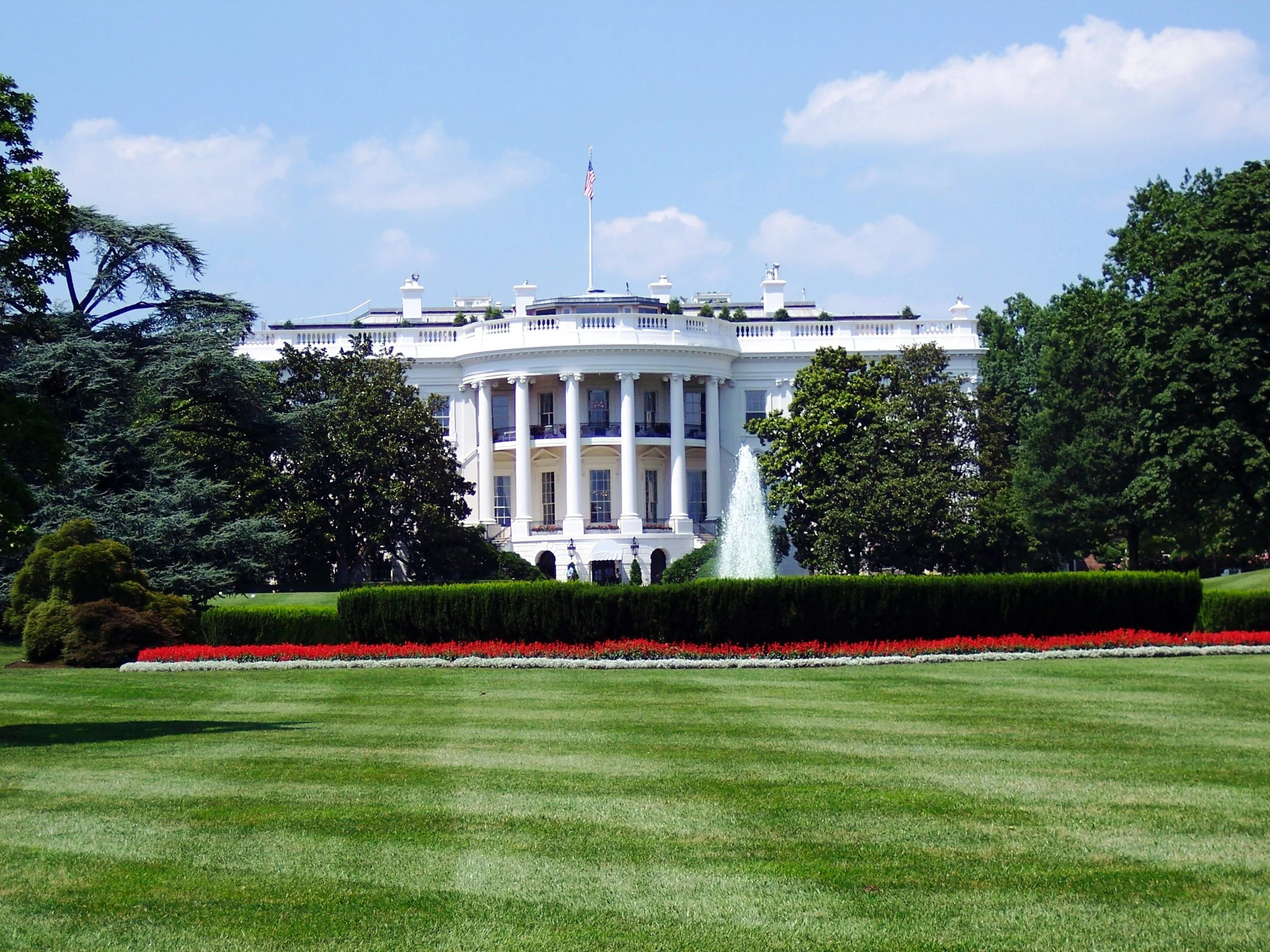What are the Roles and Responsibilities of the people that represent you?
Federal Elected Officials
-

Senate
Drafts and votes on proposed laws and resolutions.
Votes on executive nominations and treaties.
Conducts oversight of all branches of the federal government.
Votes on impeachment charges against a federal officer.
Communicates with community and local leaders about district priorities and needs.
-

President
The President is both the head of state and head of government of the United States of America, and Commander-in-Chief of the armed forces.
Under Article II of the Constitution, the President is responsible for the execution and enforcement of the laws created by Congress.
The President also appoints the heads of more than 50 independent federal commissions.
The President has the power either to sign legislation into law or to veto bills enacted by Congress.
The President can issue executive orders, which direct executive officers or clarify and further existing laws.
The President also has the power to extend pardons and clemencies for federal crimes.
-

House of Representatives
Drafts and votes on proposed laws and resolutions.
Represents your community at the federal level.
Appropriates all funds for the operation of the federal government.
Brings impeachment charges against a federal officer.
Communicates with community and local leaders about district priorities and needs.
State Elected Officials
Governor
Serves as commander-in-chief of the state's military forces.
Determines agenda and priorities of special sessions.
Grants reprieves and commutations of punishment and pardons.
Appoints people to state offices that carry out the laws and direct the policies of state government.
Declares special elections to fill vacancies in certain elected offices.
State Board of Education
Sets curriculum standards.
Reviews and adopts instructional materials.
Establishes graduation requirements.
Oversees the Texas Permanent School Fund.
Appoints board members to military reservation and special school districts.
Provides final review of rules proposed by the State Board for Educator Certification.
Reviews the commissioner's proposed award of new charter schools, with authority to veto a recommended applicant.
Lieutenant Governor
Serves as a member or joint chair of various state committees.
Appoints people to serve on state commissions, boards, and committees.
Serves as a member of the Legislative Redistricting Board of Texas.
Votes in case of tie in the State Senate.
Serves as the acting Governor when the Governor is out of state and succeeds the Governor in case of a vacancy.
Attorney General
Provides legal representation to the State, its officials and agencies.
Renders legal opinions and reviews bonds of public security.
Investigates and prosecutes criminal activities.
Works to uphold the Texas Constitution.
Protects Texans from fraud, waste, and abuse.
State Senator
Drafts and votes on proposed laws and resolutions.
Setting levels for state spending and raises and lowers taxes.
Votes to uphold or override gubernatorial vetoes.
Approves or rejects appointments made by the governor to fill vacancies in state or district offices.
Communicates with community and local leaders about district priorities and needs.
State Representative
Drafts and votes on proposed laws and resolutions.
Considers proposed constitutional amendments for submission to the voters.
Appropriates of all funds for the operation of state government.
Brings impeachment charges against a statewide officer.
Communicates with community and local leaders about district priorities and needs.
County and Local Elected Officials
County Judge
Presiding officer of the commissioners court and represents the county in many administrative functions.
Most have broad judicial duties, such as presiding over misdemeanor criminal and small civil cases, probate matters, and appeals from the Justice of the Peace Court.
Serves as head of emergency management.
Communicates with community and local leaders about county priorities and needs.
County Commissioner
Adopts the county’s budget and tax rate and approves all budgeted purchases of the county.
Fills vacancies in elective and appointive offices.
Sets all salaries and benefits for county employees and has exclusive authority to authorize contracts.
Provides and maintains all county buildings and facilities.
Communicates with community and local leaders about district priorities and needs.
School Board
Ensures creation of a vision and goal for the district and evaluate district successes.
Adopts local policies that guide how the district operates
Hires a superintendent to serve as the chief executive officer of the district and evaluate the superintendent’s success.
Approves an annual budget consistent with the district vision.
Communicates the district’s vision and success to the community.
Mayor
Can close public facilities and summon a special police force when necessary.
Authority to appoint an individual to a vacancy in a municipal office.
Performs duties directed by the city council.
Borrows funds and enters into legal contracts.
Communicates with community and local leaders about the city's priorities and needs.
City Council
Crafts ordinances and develops local policies.
Establishes the overall direction of the city and provides general direction to other city leaders.
Adopts an annual budget and sets the annual property tax rate.
Has emergency power and responsibilities.
Regulates public health and safety and can exercise the power of eminent domain.
County Constable
Serves as a licensed peace officer and performs various law enforcement functions, including issuing traffic citations.
Serves warrants and civil papers such as subpoenas and temporary restraining orders.
Serves as bailiff for Justice of the Peace Court.
Justice of the Peace
Hears traffic and other Class C misdemeanor cases punishable by fine only.
Hears civil cases with up to $20,000 in controversy.
Hears landlord and tenant disputes.
Hears truancy cases.
Performs magistrate duties.
Conducts inquests.
County Clerk
Serves as clerk and custodian of records for the commissioners court, constitutional county court and statutory county courts.
Acts as a recorder and custodian of important public records, including all bonds, deeds, birth and death certificates, assumed names and livestock brands, ensuring that records are maintained in a secure, archival manner.
Issues marriage licenses.
Serves as chief elections officer in most counties.
District Clerk
Serves as clerk and custodian of all records for the District Courts.
Indexes and secures all court records, collects filing fees, and handles funds held in litigation and money awarded to minors.
Coordinates the jury panel selection process.
May process passport applications.
Manages court registry funds.
District Attorney
Represents the state in prosecuting felony criminal cases.
Works with law enforcement officers in the investigation of criminal cases.
Presents cases to the grand jury.
Represents victims of violence in protective orders and represents the state in removing children from abusive households.
County Treasurer
Receives and deposits all county revenues.
Acts as chief liaison between the county and depository banks.
Disburses funds upon the order of the Commissioners Court.
Records receipts and expenditures and reconciles bank statements.
May prepare the payroll.
May be designated as the county's investment officer and required to submit regular reports on county finance to the members of the Commissioners Court.
May also act as the county’s human resources officer, employee benefits coordinator, risk manager and insurance coordinator.
May have some audit responsibilities in counties with no Auditor.
County Sheriff
Serves as a licensed peace officer and is responsible for enforcing the criminal laws of the state.
Manages and operates the county jail.
Provides security for the courts.
Serves warrants and civil papers.
Regulates bail bondsmen in counties with no bail bond board.
County Auditor
Prepares and administers accounting records for all county funds.
Audits the records and accounts of the various county departments.
Verifies the validity and legality of all county disbursements.
Forecasts financial data for budgetary formulation purposes Serves as budget officer in Dallas County.
Who Represents You?
Use the link below to find out who your elected officials are in the state.


